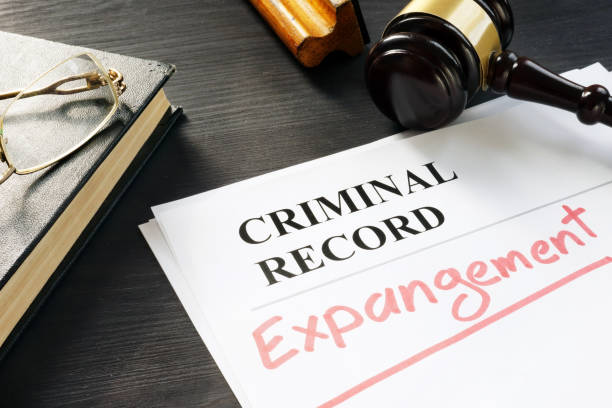Expungement: 7 Vital Factors for a Fresh Start

How Long Do You Have to File Probate After Death
August 28, 2023
Exploring the Impact of Theft-Related Misdemeanors on Job Opportunities
October 18, 2023In a world where past mistakes can sometimes cast a long shadow, the concept of expungement emerges as a beacon of hope and renewal. Whether you’ve faced legal troubles or are simply intrigued by the legal process, understanding the nuances of expunged records can empower you to pursue a fresh start with confidence.
This comprehensive guide delves into the crucial factors surrounding expungement, revealing the transformative potential it holds. By the end of this journey, you’ll be equipped with the knowledge to navigate the complexities of expungement and embrace a brighter future.
Table of Contents
- What is Expungement?
- The Benefits of Expungement
- Eligibility Criteria
- The Expungement Process Unveiled
- Step 1: Consultation with an Attorney
- Step 2: Gathering Necessary Documentation
- Step 3: Filing the Petition
- Step 4: Review and Decision
- Step 5: Expungement Granted – What’s Next?
- Potential Challenges Along the Way
- Expungement FAQs
- Conclusion
What is Expungement?
At its core, expungement is a legal process through which a person’s criminal record is essentially erased or sealed from the public eye. It provides individuals who have made mistakes in the past with the invaluable opportunity for a clean slate, unburdened by the weight of their prior legal transgressions. Expungement signifies a chance for redemption and reintegration into society, allowing people to move forward with their lives without the stigma of a criminal record.
The Benefits of Expungement
Expungement offers a multitude of benefits that extend far beyond the legal realm. Not only does it provide relief from the social and economic consequences of a criminal record, but it also reinstates certain rights and privileges that may have been forfeited due to past convictions. These benefits can include the restoration of voting rights, enhanced employability, increased eligibility for housing, and improved access to educational opportunities. In essence, expungement fosters a holistic rejuvenation, allowing individuals to regain control of their narrative.
Eligibility Criteria
While the prospect of expungement is undoubtedly enticing, not all individuals are eligible to pursue this avenue. Eligibility criteria can vary based on factors such as the nature of the offense, the time that has passed since the conviction, and an individual’s overall criminal history. Seeking legal counsel is crucial to assess whether you meet the requirements for expungement and to determine the best course of action moving forward.
The Expungement Process Unveiled
Step 1: Consultation with an Attorney
Embarking on the expungement journey begins with a consultation with an experienced attorney. These legal professionals are well-versed in the intricacies of the law and can provide personalized guidance tailored to your unique situation. A consultation will allow you to understand the feasibility of expungement in your case and the potential outcomes you can expect.
Step 2: Gathering Necessary Documentation
Once you’ve decided to pursue expungement, the next step involves gathering the necessary documentation. This may include court records, arrest records, and any additional paperwork related to your conviction. Thorough documentation is essential to build a strong case in favor of expungement.
Step 3: Filing the Petition
Filing a petition for expungement is a pivotal phase of the process. Your attorney will draft a comprehensive petition that outlines the grounds for expungement and presents the evidence supporting your request. This legal document serves as the foundation upon which your case will be evaluated.
Step 4: Review and Decision
After the petition is filed, it undergoes a thorough review by the court system. This review assesses various factors, including your criminal history, the nature of the offense, and your behavior since the conviction. The court’s decision will determine whether your request for expungement is approved.
Step 5: Expungement Granted – What’s Next?
If your request for expungement is granted, congratulations are in order! With your record expunged, you can now embrace a fresh start. However, it’s important to note that the specifics of the expungement process can vary based on jurisdiction. Some jurisdictions may seal the record entirely, while others may allow limited access to certain entities. It’s vital to fully understand the terms of your expungement to make informed decisions moving forward.
Potential Challenges Along the Way
While the prospect of a clean slate is undeniably appealing, the expungement journey can present its fair share of challenges. Navigating the legal complexities, gathering required documentation, and meeting the eligibility criteria can be daunting. However, with the guidance of a skilled attorney, these challenges can be overcome, paving the way for a successful expungement.
Expungement FAQs
Q1: How long does the expungement process typically take? A: The timeline for expungement can vary widely depending on jurisdiction, case complexity, and court backlog. It’s advisable to consult with an attorney to get an estimate tailored to your situation.
Q2: Can expunged records resurface in the future? A: In most cases, expunged records are sealed from public view and should not resurface in background checks. However, certain law enforcement and government agencies may retain access to sealed records.
Q3: What if my expungement petition is denied? A: If your petition is denied, your attorney can explore alternative options, such as appealing the decision or seeking other forms of relief.
Conclusion
The journey to a fresh start through expungement is marked by determination, legal acumen, and the unwavering support of experienced professionals. With the weight of past mistakes lifted, individuals can embrace a new chapter with newfound optimism and opportunities. If you find yourself standing at the crossroads of expungement, Thompson Law is your steadfast partner. With over 14 years of expertise in family law, criminal law, and estate planning and probate, Thompson Law offers the guidance and advocacy you need to navigate the expungement process successfully. Reach out today and take the first step toward a brighter future.
admin
Related posts
Enter Thompson Law, the stalwart guardians of familial harmony in Bakersfield. With a track record spanning over 15 years, they bring unparalleled expertise to the table. The team at Thompson Law isn't just well-versed in the legalities; they are passionate about safeguarding the emotional welfare of their clients. When it comes to family law matters, trust Thompson Law to be your guiding light through the legal maze.




